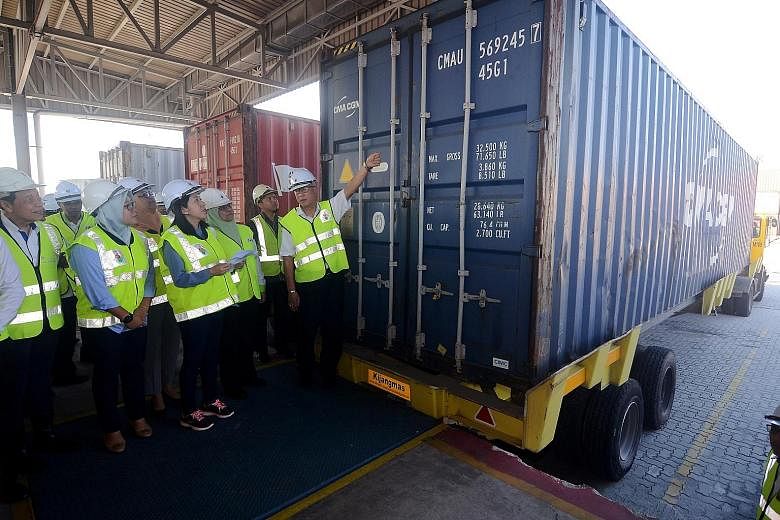Malaysia has begun the arduous diplomatic process of returning thousands of tonnes of illegal plastic trash to their exporting countries, amid ongoing operations at the three main ports of Klang, Penang and Sarawak.
"The government is taking stern action to combat the illegal movement of plastic waste into Malaysia by stopping the movement at the source, which is at the ports," Energy, Science, Technology, Environment and Climate Change Minister Yeo Bee Yin told a news conference at Penang Port yesterday.
"To date, the government has repatriated 150 containers of illegal plastic waste with approximately 3,737 tonnes," she added.
The plastic waste did not have import permits and did not meet the criteria for importing plastic waste under the Basel Convention on Transboundary Movements of Hazardous Wastes and Their Disposal.
Malaysia has been working on repatriating the containers since last year, and officials said it was an uphill task, as the exporting countries would not accept them.
They also said they struggled to identify the country of origin of the containers, as many were abandoned at the ports.
Local Housing and Government Minister Zuraida Kamaruddin in August suggested that incineration may be the best way to clear the waste, as some of the exporting countries were not party to the Basel Convention and would not take the rubbish back.
But these issues appear to have been ironed out, with exporters or shipping companies agreeing to foot the bill.
"The repatriation exercise does not incur any cost to the government of Malaysia. The costs were either borne by the exporters or shipping liners," Ms Yeo said.
Two countries accounted for over half the number of containers - France (43) and Britain (42). There were also containers from the US (17), Canada (11), Spain (10), Japan (five) and Singapore (four). The rest were from Portugal, China, Bangladesh and other countries.
Malaysia is also in the process of returning another 110 containers still at its ports while it prepares to launch an action plan for the importation of plastic waste next month. The breakdown of the 110 containers and their countries of origin are: the US (60), Canada (15), Japan (14), Britain (nine), Belgium (eight), and one each from Mexico, Hungary, France and Jamaica.
"For Malaysia, we do not want to pay a single sen because it is not about money, it's about dignity. People dump their rubbish in your country, you are not supposed to pay them to send it back," said Ms Yeo.

